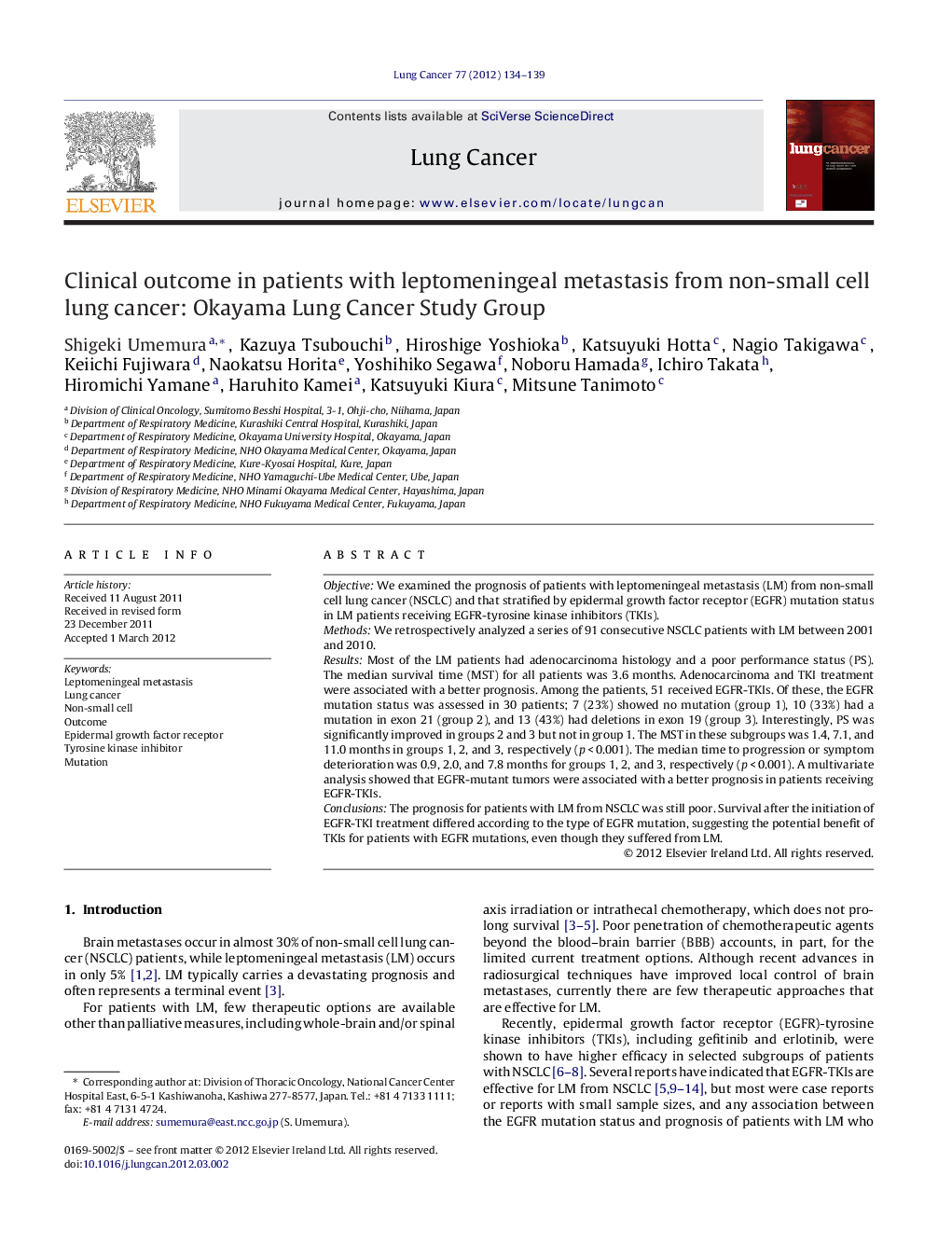| Article ID | Journal | Published Year | Pages | File Type |
|---|---|---|---|---|
| 2142170 | Lung Cancer | 2012 | 6 Pages |
ObjectiveWe examined the prognosis of patients with leptomeningeal metastasis (LM) from non-small cell lung cancer (NSCLC) and that stratified by epidermal growth factor receptor (EGFR) mutation status in LM patients receiving EGFR-tyrosine kinase inhibitors (TKIs).MethodsWe retrospectively analyzed a series of 91 consecutive NSCLC patients with LM between 2001 and 2010.ResultsMost of the LM patients had adenocarcinoma histology and a poor performance status (PS). The median survival time (MST) for all patients was 3.6 months. Adenocarcinoma and TKI treatment were associated with a better prognosis. Among the patients, 51 received EGFR-TKIs. Of these, the EGFR mutation status was assessed in 30 patients; 7 (23%) showed no mutation (group 1), 10 (33%) had a mutation in exon 21 (group 2), and 13 (43%) had deletions in exon 19 (group 3). Interestingly, PS was significantly improved in groups 2 and 3 but not in group 1. The MST in these subgroups was 1.4, 7.1, and 11.0 months in groups 1, 2, and 3, respectively (p < 0.001). The median time to progression or symptom deterioration was 0.9, 2.0, and 7.8 months for groups 1, 2, and 3, respectively (p < 0.001). A multivariate analysis showed that EGFR-mutant tumors were associated with a better prognosis in patients receiving EGFR-TKIs.ConclusionsThe prognosis for patients with LM from NSCLC was still poor. Survival after the initiation of EGFR-TKI treatment differed according to the type of EGFR mutation, suggesting the potential benefit of TKIs for patients with EGFR mutations, even though they suffered from LM.
